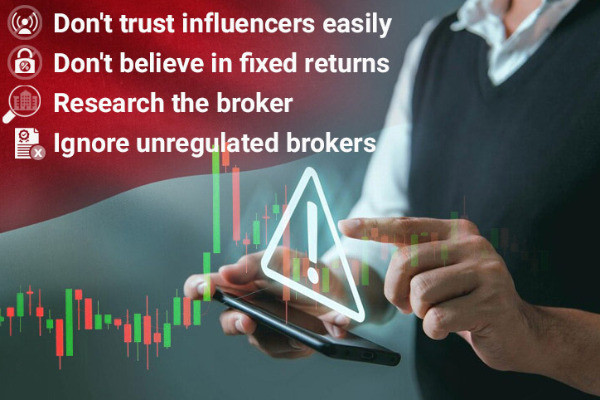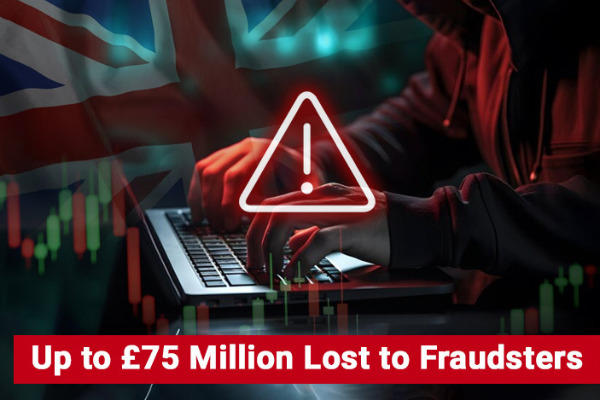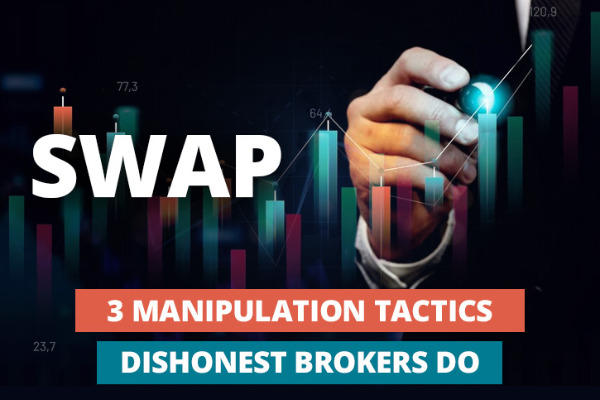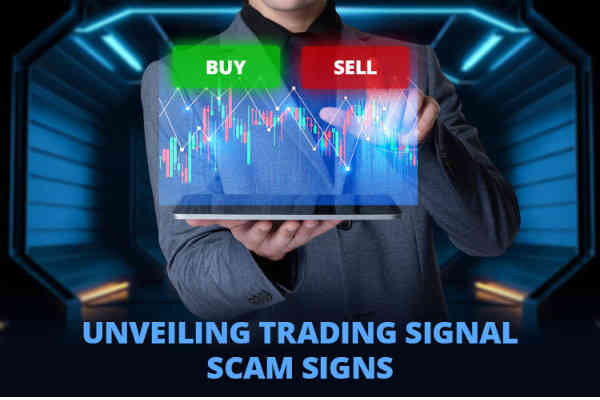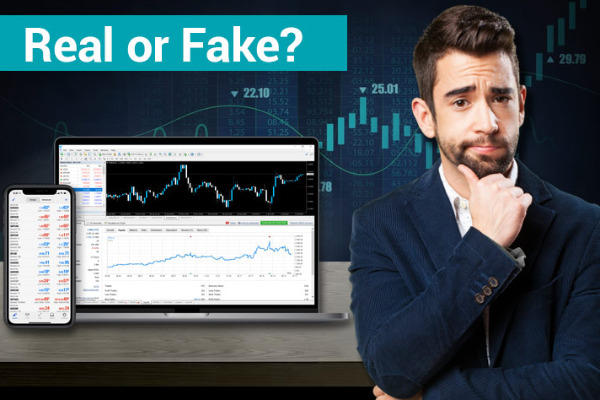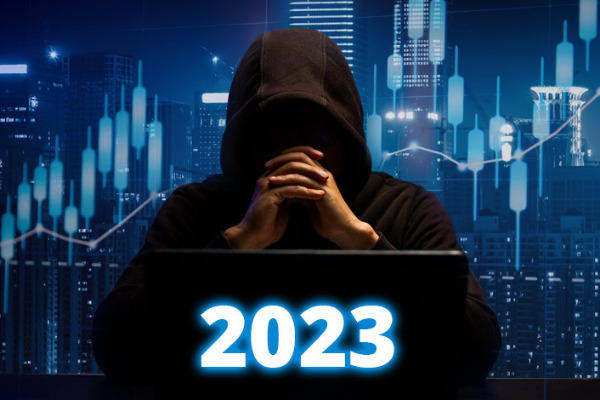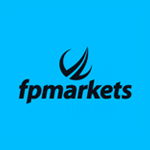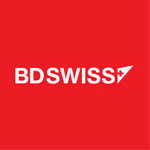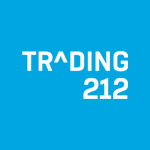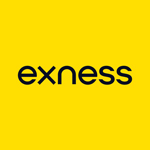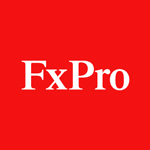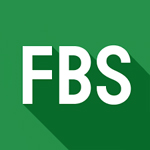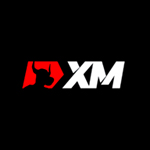Apart from the unavoidable risks in the market, it is also possible to lose money in forex trading because of scam brokers. Find out if your broker is honest or just a fraud by its characteristics.
Forex broker is an essential part of forex trading. Most traders would want a broker that acts in the interest of the trader. Low commission fees and extra bonuses are the top things traders often look for in a broker. However, it is no secret that the financial industry is filled with conflicts of interest. It is actually very understandable for brokerage firms to ask for commissions and gain earnings for themselves as they are often under the pressure to do so to keep the business going. Unfortunately, what brings the most money for brokers is not always profitable for traders. Some brokers can even use illegal actions and trick their clients into getting more income.
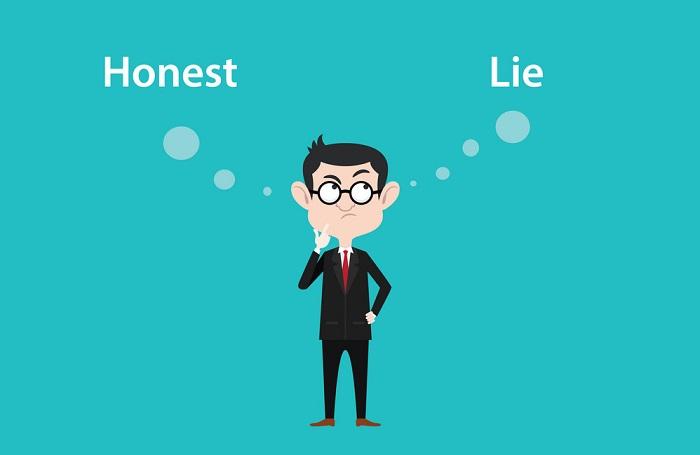
While everybody must survive and make a living, including forex brokers, tricking clients and making false promises are unethical and illegal. That is why finding an honest broker is very crucial but it is quite difficult. Even though government authorities and regulators worldwide have repeatedly released warnings, fraudulent schemes that have been haunting the forex industry for years are still around. The frauds will always find new ways to adapt and reappear with new brands.
Even so, don't let this scare you because there are still many honest and trustworthy brokers out there. But the real question is how to tell between a fake broker and an honest one? Let's elaborate on the 4 types of forex broker scams below.
1. Fake Brokers
If you search up fake or scam brokers on the internet, surely you will find a long list of brokers in it. First of all, you should note that the main reason why fake brokers are called "fake" is that the broker actually has no clear information about their whereabouts, whether they are regulated or not, and vice versa. Sometimes, they would include false information on their websites, but it's really just another lie.
Some of the things that you should pay attention to:
- Check the regulation. It's possible for fake brokers to claim that they are regulated on their websites. But simply claiming themselves as a regulated broker is easy. You need to make sure if it is the whole truth or just a trick. In the past decades, checking the reliability of a broker's regulation in a foreign country can be challenging. But nowadays, the information you need is available on the internet for free. You just have to open the regulator's official website and check if the broker's really associated with them, or you can search via Google Search with the keyword "broker-country-regulator". For example: "CySEC Cyprus Forextime". The confirmation will come up immediately.
- Check if the broker's address is real. The easiest way to do it is by checking if the address is a PO BOX or not. If it is, then it's more likely to be fake because they're not using their real address. If you want further confirmation, enter the provided address on Google Maps and see if the office's name shows up and whether the location really exists or not.
2. Copycat Brokers
As the name suggests, copycat brokers usually steal the names of popular brokers and slightly change them. For example, FXDD becomes FXTT and such. It is also possible that they use a similar URL. One of the most famous cases were experienced by Alpari whose original address is www.alpari.org and www.alpari.com. They were cloned by some entities who called themselves alparimalaysia.com, alpari-cn.com, and alpari-cr.com. Because they are very similar, traders are often misguided and ended up trusting the wrong brand.
How to check if the broker's a copycat or not:
- When you search up a broker's name, choose the one appearing on the top suggestion. This doesn't fully guarantee the website is legit, but it's usually accurate. Other than that, if you visit a new broker from a link, make sure it is from a trusted source, not from an email that randomly pops out in your inbox.
- Before registering with a broker, it would be wise to read the reviews from the broker's clients or ask questions in traders' forums that are widely available online. A real broker will match the description mentioned in the reviews, while a copycat broker will be much different and appear less professional.
3. Money Game Brokers
The danger of the money game has now reached the forex industry, especially in the form of forex brokers. These brokers only have one goal: to drain the traders' funds and fill their own pockets with their victims' money. Typically, money game brokers try to trick investors by luring them into an unrealistically profitable system that promises high returns without any risk. So, to avoid this type of broker, we must be able to recognize the signs of the money game trap such as:
1. Promises of High Fixed Returns
Usually, money game brokers will promise high returns ranging from tens to hundreds of percent per year. Remember that in forex trading, when something sounds too good to be true, then maybe that's because it is. The truth is that profit in forex trading is never fully guaranteed to always be the same in a regular time frame. No trading system is 100% accurate and can successfully predict the price movement every single time.
Even the most expert trader will have to experience loss once in a while. A real forex broker knows this, and indeed, they will display a warning for its clients. On the other hand, money game brokers will instead promise a fantastic amount of fixed returns, as if traders will always trade successfully.
2. No Track Records
In general, traders will have to trade on their own by using their strategy and preferred instruments. However, some brokers provide facilities that only require the traders to deposit some money and let the professional traders take care of the rest. In return, the experienced traders will receive commissions from the profits they've made, while the traders will get a portion of the profits.
We've mentioned that essentially no trading strategy works all the time. So if you want to try this system, you should check the professional traders' track records. From there, you can see if the trader's really skilled and has a steady performance with good risk management. However, if the broker does not provide a track record like this, you should be alarmed. Usually, money game brokers only promise a certain percentage of profit without providing the trading history of their "professional traders" performances.
See Also:
3. Withdrawal Difficulties
To put it simply, traders need a broker to deposit their funds as trading capital and invest it in the market. As a capital, the funds can be reduced if you lost and can increase if you win a trade. If the broker's honest, they will indeed allow you to deposit and withdraw your capital regularly with little to no problem.
In contrast, if the broker frequently restricts you to withdraw your funds, there might be something suspicious. It is possible that the broker would the withdrawing process or even claim that the operation has failed. This is because money game brokers use the traders' funds for their own purposes, so traders are always at risk of withdrawal failures.
4. Cheating Brokers
This last type of scam broker is probably the hardest to detect because they are not entirely evil, but they are not purely honest either. Even if the broker's legally regulated, they can still cheat for their own gains. There are some ways in which they trick traders such as:
- Price manipulation. This is one of the most popular techniques that they use to cheat traders. At first glance, the spreads they offer are quite low, but it actually isn't. So when you execute an order and it seems like going along with the price movement, the broker might slow the execution. But if it doesn't seem profitable, the broker will process your execution immediately.
- Stop loss hunting. The broker's system will execute stop loss orders quicker than what they should be by increasing spreads.
- Bonus trap. The first rule in choosing a forex broker is that when a broker offers something that feels really fantastic or unrealistic, you should always remember that brokers will not provide anything for free without gaining something in return. The bigger the bonus showed, the harder the requirements will be or the higher risk behind it. Many rewards ended up non-existent, cannot be withdrawn, or suddenly disappear. That is why you must read the terms and conditions for each bonus program, as well as carefully review the broker's overall history when they held promotions.
Characteristics of an Honest Broker
Summing up this article, finding an honest broker is actually not impossible. There are many honest brokers out there that are worth the money and time. In general, compared to scam brokers, honest brokers are more clear and straightforward in most aspects of their facilities. Other than that, some of the more specific characteristics in an honest broker are:
- Clear regulations and office addresses.
- Responsive customer support, at least in the working days.
- The trading facilities provided are transparent and synchronous.
- The website is well-maintained, updated, and equipped with a disclaimer that the profit in forex trading is proportional to the risk.
- The broker is recommended by other traders or trusted sources. For example, the regulation can be cross-checked, the name often quoted by famous news agencies or positive reviews from clients.
- Withdrawals are processed with minimum or no difficulties.
By recognizing which brokers are honest or scams, we can avoid unnecessary conflicts and loss of funds, while simultaneously learning to be a better trader.

 Dedicated FREE FOREX VPS
Dedicated FREE FOREX VPS Free FOREX Virtual Private Server
Free FOREX Virtual Private Server MT4 Demo Contest, Get $500
MT4 Demo Contest, Get $500 Sign Up for an Account, Claim 60% Deposit Bonus
Sign Up for an Account, Claim 60% Deposit Bonus Free MT4/MT5 VPS 2024
Free MT4/MT5 VPS 2024 Send E-mail and Get Free Merchandise
Send E-mail and Get Free Merchandise $1K Refer a Friend Bonus for Pepperstone Pro clients
$1K Refer a Friend Bonus for Pepperstone Pro clients Maximize Your Earnings with 100% Deposit bonus
Maximize Your Earnings with 100% Deposit bonus Trade to Win, $5,000 Monthly Demo Contest
Trade to Win, $5,000 Monthly Demo Contest Claim 30% + 15% Deposit Bonus from LiteFinance
Claim 30% + 15% Deposit Bonus from LiteFinance
